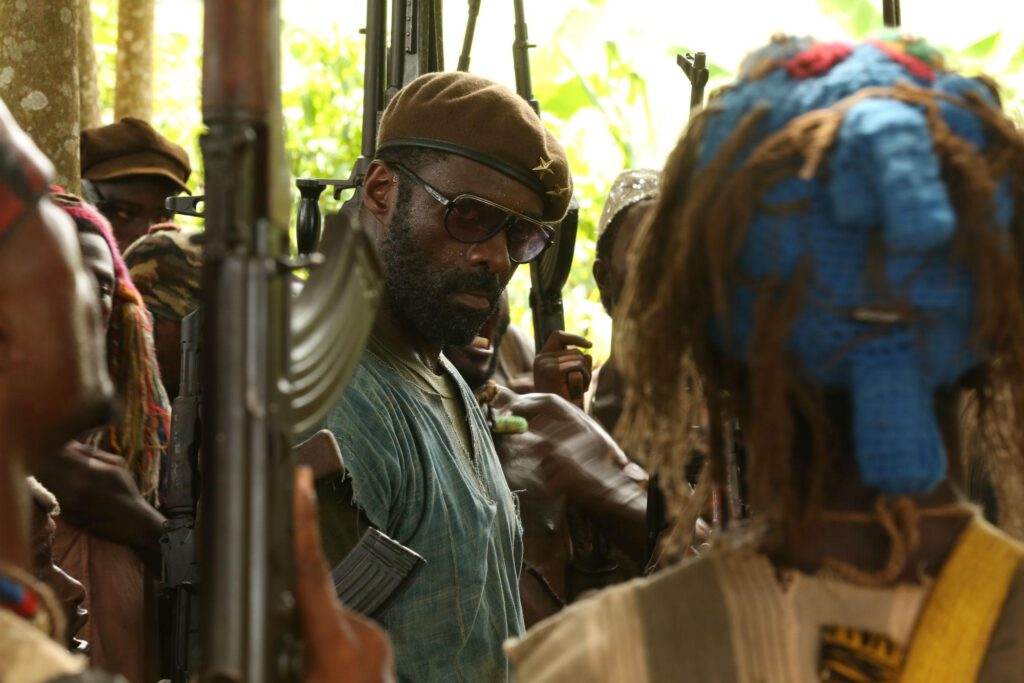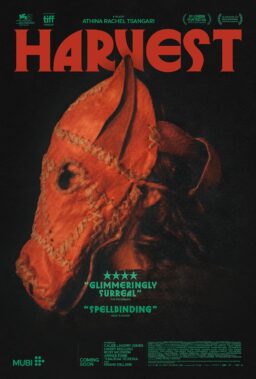“Beasts of No Nation,” which
premiered at the Venice Film Festival and played Telluride this weekend, is the
type of suicide mission that could only be pulled off by a great director. A
full immersion into the world of child soldiers, Cary Fukunaga’s film does not
flinch from that which makes it very difficult to watch. For a movie made by a
home theater option (Netflix, their first ever), it uses the timeless concept
of getting viewers to sit down and watch a film not as entertainment enjoyed
from a distance, but as journey into cinematic hell both immensely bleak and
completely foreign. As I did, viewers will undoubtedly question why they’re
watching such a relentless experience, especially as its ferociousness
amplifies, and its hope for solutions all but evaporates. But Fukunaga leads
head-first with his passion, presenting a vision that is too massive, thorough,
and emotionally refined to not be trusted. Only at the end of its journey does
“Beasts of No Nation” become truly rewarding, leaving viewers with an awe more
profound than comfortable stories.
Based
on the novel by Uzodinma Iweala, “Beasts of No Nation” is the merciless account
of a child soldier’s life journey. Newcomer Abraham Attah plays Agu, a regular
boy living in a non-disclosed African country, whose life is completely
destroyed when his family is torn apart by a war between rebels and government
soldiers. Initially unable to resist, but ultimately in need of a new family,
Agu is trained by a group of rebels who provide him food, protection and
brotherhood. He has a new father figure as well, Idris Elba’s Commandant. Like
with the dozens of other young men that proudly serve him, Commandant
weaponizes the vulnerable Agu. “Beasts of No Nation” then follows Agu and his
rebel group as they invade more towns and murder civilians, the significance of
death progressively shrinking. For the Commandant, who is revealed to have his
own vulnerability later in the film, and for his soldiers, vicious power
becomes something that they take with force.
This
journey from child to soldier is a massive undertaking for a first-time actor, as
he becomes our only hope for some type of peace in this world, and for the
amount of time Fukunaga spends on Agu’s face, trying to express his inner
conflict. Attah seems to be working with simple expressions at first, but his
performance becomes much more confident as the story picks up, giving him more
dimensions to play. In a searing finale, Attah gets the last word, leaving the audience with an
incredible monologue about the child soldier experience, reaching a peak of
self-assurance with the camera.
Elba
reigns again as Commandant, who he plays like a revered coach, someone given the
job to rally players. He dresses like a rock star, with sunglasses, a cigar out
the side of his mouth, and a confident I-own-this-war-zone stride, and he
remains close to his team. They respect him endlessly, not because of the way
he has brainwashed them but for the support he provides them, standing right
next to them in brutal strife. Elba’s inherent, massive charisma really
succeeds when mixed with his down-to-earth paternal instincts, and showing a
man, bulked up by power, who is no more important than his assignment. Some of
his best moments involve him sitting in a lounge, forced to wait patiently for his boss to
make time for him.
Aside
from premiering on Netflix, “Beasts of No Nation” will also be available in
theaters, the absolute best place for viewers to properly experience this film,
if not for the way that Fukunaga’s intricate wide shots envelop viewers into
the landscape of an environment destroyed by war, then for the immaculate sound
work that completes the aesthetic package. Witnessing the film in the front row
of Telluride’s Werner Herzog Theater, even the subwoofers had piercing
emotional effect when the bass roared intensely underneath scenes of emotional
despair, or when a military convoy rolled into town with a monstrous presence,
one no less frightening than the sporadic bullets that whistle, crack and kill
during its scarring scenes of chaos.
Along with getting viewers to trust a filmmaker’s vision, Fukunaga’s masterful project answers questions
about “why tell this story” through its expansive perspective. With a firm
grasp on its human element through the narrative’s tragedy, it is not just
about the horror of child soldiers but sons and fathers, the assumed role of
power through weapons, the desensitization of violence and more. Agu’s life
story is only a window into another world, the beginning of an international
reflection that speaks with unforgiving prose.












